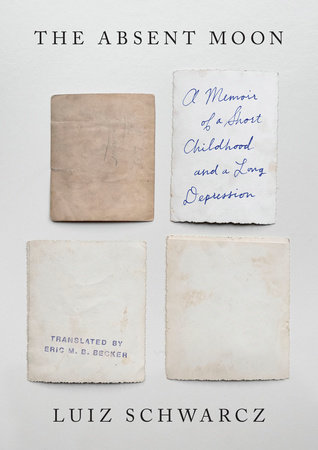“Marked by a clarity that comes from total, rigorous precision . . . reads like a liberation, not just from the form of the next-generation Holocaust memoir but also from the assumption, so common in autobiographical writing, that memory should create meaning . . . The Absent Moon is, for all its restraint, a profoundly emotional book, and a brave one.” —The New Yorker
“Luiz Schwarcz's talents are well-known in his native Brazil, but now all of us can benefit from his captivating prose and incisive emotional dissection . . . Slim, small, and searing, this quiet-looking book packs an enormous punch.” —Zibby Owens, Good Morning America
“This is a story of intergenerational pain and its reverberations in everyday life. Throughout the memoir, we see a boy, a teen, and a man fighting demons—others’ and his own. That fight is sometimes successful, sometimes not, but it’s always deeply human.” —Jewish Book Council
“A Brazilian writer and publisher memorably chronicles his Jewish upbringing in São Paulo as an only child plagued by depression. In this beautifully composed narrative, Schwarcz investigates the undigested trauma from his postwar childhood, a time shadowed by the long-lasting guilt and depression of his Hungarian Jewish father, András . . . ‘For years now I’ve been living in a world of few words, in an ambiguous silence,’ he writes. ‘It can be as soothing as it is oppressive and addictive. In this vacuum, my manias create alternate realities, always much more imaginary than concrete.’ Imaginary or not, these stories will resonate with anyone dealing with depression, anxiety, mental illness, and/or generational trauma. A riveting literary memoir.” —Kirkus Reviews (starred review)
“In this intimate and profound description of a life often marked by depression, Luiz Schwarcz touches on the insidious power of intergenerational trauma; on the terrible challenges of functioning despite a crippling disease; and on the burden of carrying a disability in relative silence. His is ultimately a book about identity, about how the author has managed, both despite and because of his depression, to inhabit a good marriage, an excellent career, a lovely family, and, perhaps most crucially, a coherent sense of self. It is written with spare economy, tremendous bravado, and authentic courage. It is generous in spirit, devoid of self-pity, and an authentic literary achievement.” —Andrew Solomon
“A beautiful work that is in turn haunting, touching and redemptive.” —Simon Sebag Montefiore
“This tender and lovely memoir of a child growing up in Brazil in a household whose characters were scarred by the Holocaust is unlike anything I can think of. It is also a lyrical and intimate portrait of the author’s lifelong, harrowing battle with depression.” —Abraham Verghese, author of Cutting for Stone











